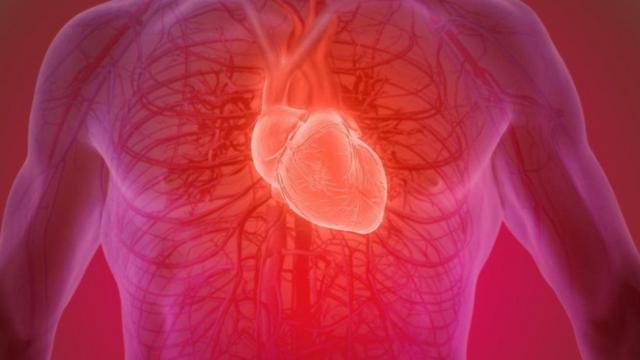The heart is an organ about the size of a fist that pumps blood throughout the body. It is made up of several layers of fabric.
The heart is located in the center of the circulatory system. That system is a network of blood vessels, such as arteries, veins, and capillaries, that transports blood to and from all parts of the body. Blood carries oxygen and nutrients that organs need to function properly. Blood also carries carbon dioxide to the lungs so we can exhale it. In the heart, there are valves that keep blood flowing in the right direction.

The heart's electrical system controls the rate and rhythm of heartbeats. A healthy heart supplies the entire body with the right amount of blood at the necessary frequency to function well. If an illness or injury weakens the heart, the body's organs will not receive enough blood to function normally. A problem in the electrical system — or the nervous or endocrine system, which controls heart rate and blood pressure — can also make it harder for the heart to pump blood.

